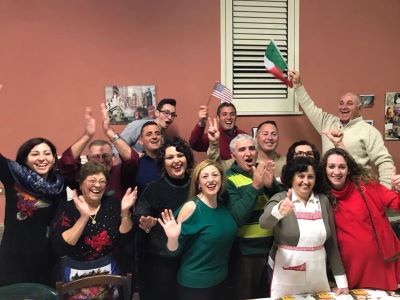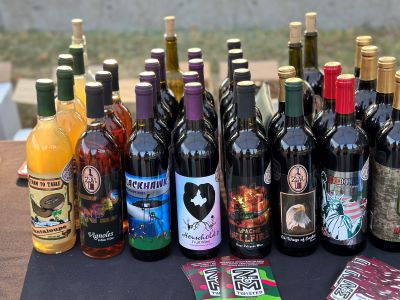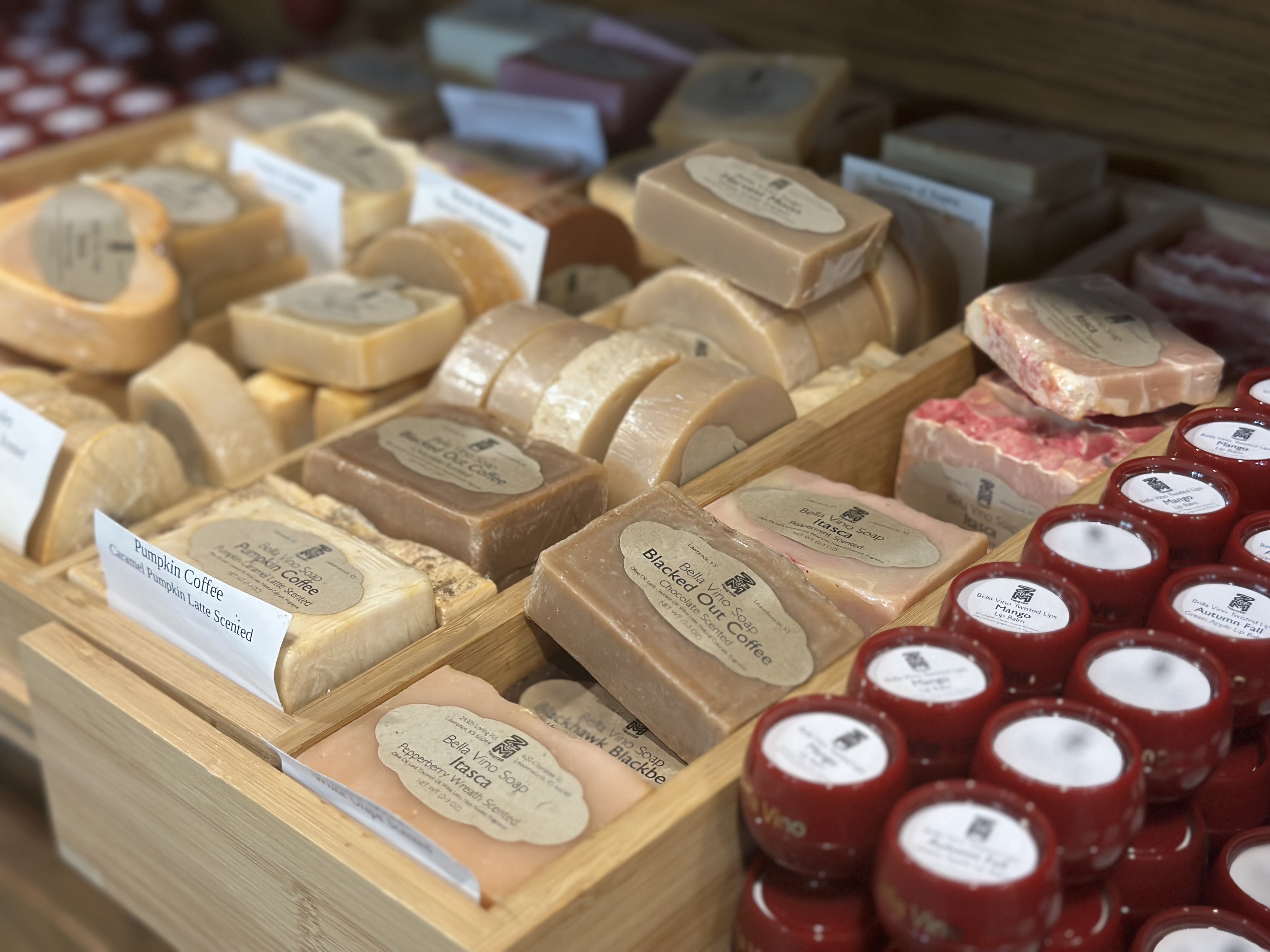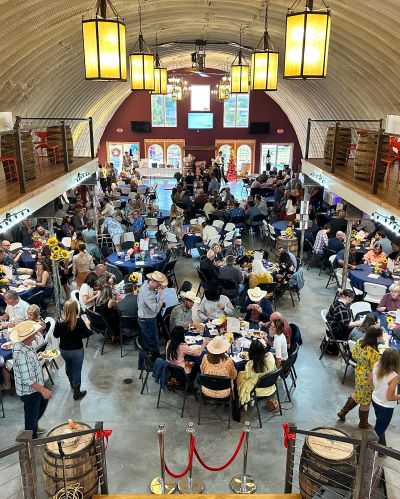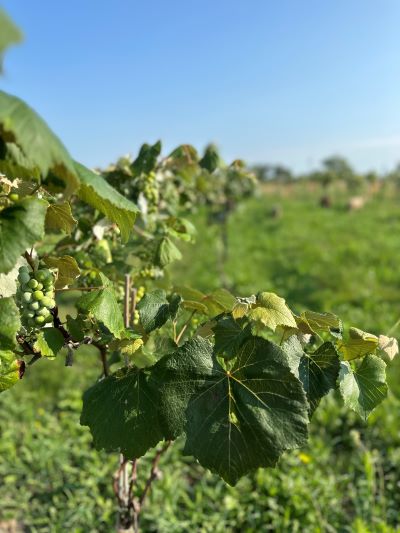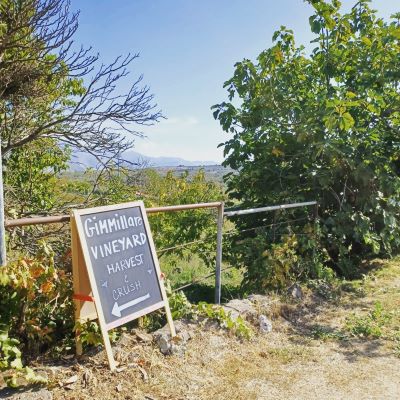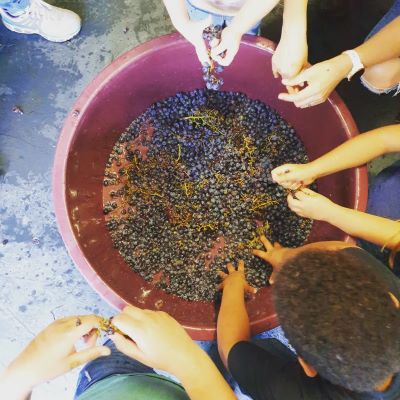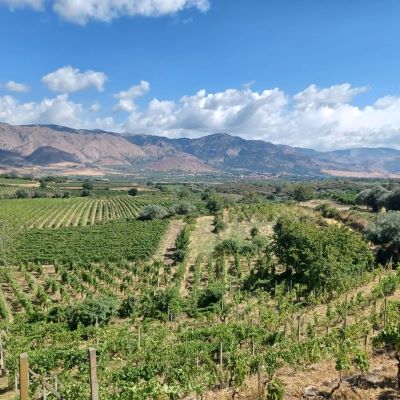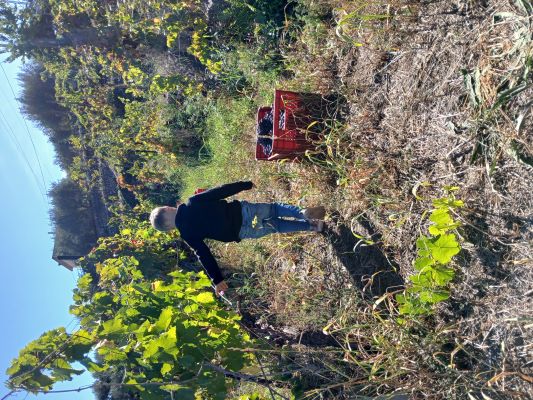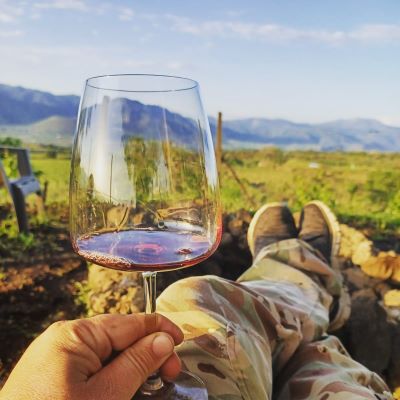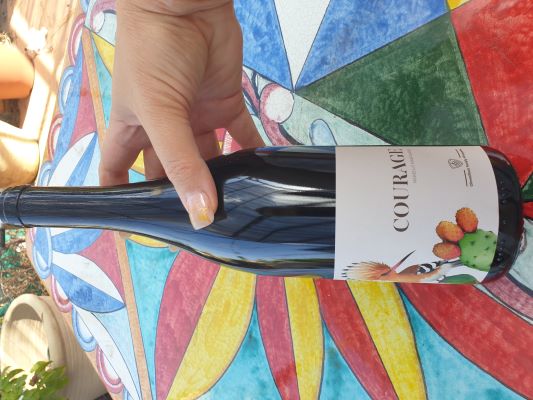With two parents from Mazara del Vallo, Sicily, Gina Montalbano's upbringing was rooted in tradition. Part of that was recognizing that her family had ties to viticulture. Her father had worked in vineyards, and she always heard about her mother's family wineries and vineyards.
After a career in education for Gina, who holds a doctorate in educational leadership, and in the Army for her husband, Bryan Zesiger, a retired Major, the Kansas-based couple found themselves drawn to winemaking and decided to pay Gina's Sicilian family a visit in December 2018.
"We were driving down this road with Gina's cousin, and there are vineyards all on both sides," remembers Bryan. "We're in this little Fiat, and I'm like, 'Hey, when are we going to see your vineyard?' Because I was thinking he's got a little section. He goes, 'Oh no, these are all of our vineyards.'"
It was an eye-opener. "We were like, 'What we're doing in Kansas is small in comparison,'" says Gina.
Their former home operation has evolved into Z&M Twisted Vines Winery and Vineyard, which has a Lawrence, Kansas, vineyard and tasting room and a Downtown Leavenworth, Kansas, winery.
Gina and Bryan remain resourceful, turning mistakes into opportunities and waste into treasured products. It's part of learning and growing but also core to their identities.
"That's part of my heritage," Gina says. "And so that pulls through with Bryan's military endeavors. He's lived around the world where people don't have what we have. We're always thinking of how to repurpose and reuse things and make the best of a bad situation. That's how we ended up just trying to build variety within what we do."
Gina shared more about the journey, influences, challenges, and Z&M's sustainable practices.
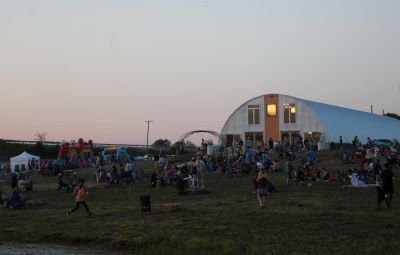
Z&M opened its vineyard to the public in 2020 and hosts regular events.
How did you get started?
Bryan had served 26 years in the Army, and I was an elementary principal. We were both at a point in our careers where we could do something different if we wanted and retire from what we were doing. So, we decided to get started on the endeavor and make wine, not just as a hobby.
People were very encouraging, saying, "Hey, you guys should do this. Your wine is really good. I think more people would like it."
That's when we bought the building in Downtown Leavenworth, which is a three-story building, but the cellar is where we were producing. And then it has a back garage, so it was kind of like seriously old-school wine-making. We were crushing grapes in the back garage, carrying them down in big totes into the cellar, and making wine in that location—literally handcrafting.
We had about 300 six-gallon glass carboys; you get about 28 bottles out of a carboy. But as we continued, we were like, "There is no way we can keep up this way with just the two of us, but also in such small quantities." We needed to be able to do larger batches. So we were like, "OK, we need some land. We're going to be farmers. Let's grow our own grapes."
We bought the property with the Lawrence address in 2019 and planted our vines. They're on year six, so we get our own harvest and work with other vineyards that don't have wineries attached to them. Now that we're big enough and making enough product, we contract with other growers and use our grapes plus theirs, and then we also do lots of other fruit wines.
We've added our own personality and twist to everything. We hope people enjoy hearing our story through the labels of the wine and the flavors we're putting together. At this point, we craft about 50 different wines: reds and whites, traditional drys, and a little semi-sweet. Those are all Kansas-grown grapes. Everything is made here, from this area, and on our property.
At the vineyard, the building that we are currently in is a big Quonset. Our harvest center has a wine-making side; we can invite guests for tastings. And so it's a labor of love, but at the same time, it's our opportunity for growth. We are adding an automated bottling line. That will change the trajectory of the amount of time it takes us to hand-bottle everything and help us be more efficient with our time and opportunity for distribution.
Gina with her family in Sicily
How has your Sicilian heritage inspired you?
The very first wine that we made came from my grandfather's recipe and wine-making techniques, and it's called Harvest Moon. The label is a throwback to a vineyard with a big harvest moon. It's one of my family's white wine recipes. We leave the skins on the grapes, which is kind of an old-school Sicilian tradition because the flavor comes from those. Here in the States, whites are typically just pressed and crystal clear.
It's just been a lot of fun because we've done some very traditional things as we started our farm winery and utilized some of my grandfather's recipes.
Z&M crafts about 50 different wines with Kansans-grown grapes.
What challenges have you faced along the way?
Bryan and I didn't grow up as farmers, and we're not from Kansas. I know elementary lingo/education talk, and Bryan knows the military, so we're learning a new language.
When we both retired, we lost our communities. It's like, who are our people? Who's the go-to person we ask questions? And we're both very driven to learn as much as we can. We joined as many things as possible to get involved in and learn more. We watched a lot of YouTube videos, and we talked to other people.
There was the hurdle of becoming farmers or owning a vineyard in Kansas, a state that hasn't been super well-known for grape-growing and wine-making since prohibition, and alcohol laws in the state have been slow to change.
Hurdle two was the upscaling of recipes, going from six gallons at a time to 250-gallon tanks and then 500-gallon tanks. There was a point where wine got messed up, and Bryan came back to me, saying, "We have about 500 gallons of wine that I don't think is going to be OK." And I'm like, "What do you mean? That's a lot of money. That's a lot of time. We've got to fix it."
And so I said, "Don't dump it out. We're not going to make vinegar. Let's come up with a new plan."
American brandy is cognac, and cognac is made from white grapes. And so it's essentially distilled wine that is aged. Bryan learns all this through studies, and he and I are looking stuff up. Before we knew it, we were like, "OK, we can take this wine and distill it and then age it and make it brandy."
In our research, we learned we could add brandy back to our wine and make what's called fortified wine, which becomes an American version of port wines.
It allowed us to transition and make a product, so there's a whole line of wine through this adversity that we now call Double Tap. They are all at 20% ABV and made with our own in-house brandy. It turned out to be a good accident in disguise.
Bella Vino soaps and Twisted Lips
Speaking of resourcefulness, tell us about your Bella Vino line.
It started with the home wines we were making. I love coffee, just like every Sicilian. So, the concept of "Let's make a coffee wine" came into play.
We made our first coffee wine using real coffee beans and ground coffee. One day, we were bottling the coffee wine. We had filtered off and racked off, and a lot of residue was left from the coffee grounds. My stepdaughter Aspen was YouTubing videos while we were working in our basement.
I had promised her that when we finished, we would do something that she wanted to do. Well, she wanted to make a body scrub. She was looking up recipes for making homemade body scrubs, and we were listening to her videos while we were bottling. And Bryan was like, "Hold on: exfoliant. These coffee grounds are rich, rustic, and scratchy. Maybe we could use those and make our own recipe based on one of these videos you're looking at."
So, it became the family project that night to make this scrub, and that was the birth of Bella Vino. It didn't come to fruition as an actual LLC or company until 2019. We had opened the doors, and we were making wines. And we were like, "We should not forget what we were doing with the leftovers." And so we started the Bella Vino line. There are little chapsticks, sugar scrubs for your lips, and body scrubs. Then we said, "Well, if we make this, we can surely make other products."
We found a local farmer's wife making soap, and I asked, "Do you think you could make soap with the other leftovers I have?" And so we went through that process and figured out how we had to dehydrate things or whatever, but then we could use those fresh leaves from the tanks. And so we started making soaps, body scrubs, and what we call Twisted Lips. (I got to design a little container that looks like a wine glass. And so when you twist off the top of the little wine glass, it's your chapstick inside.)
When we bottle, we end up at the tail end with four or five bottles of what was still left in the lines and the tanks. We didn't want to put it in a box and tape it closed with only four bottles, so we had all of these boxes with random wines in them.
We said, "We should make these into jelly," and then we started making our wine jelly. So, every single bottle of wine left over from when we finish up those extra bottles becomes jelly.
Being kind of frugal is a Sicilian thing; it's just how I grew up. My dad worked, and his English was not great. He became an American citizen, worked at the same factory I can remember as a kid, and built his family of five kids. We all went to college. It's about hard work and taking pride in who you are; that's who I am because of my parents.
I was kid number four, so there were lots of hand-me-downs from my sisters. You don't always get new things; you're always thinking of how you can repurpose and not waste stuff.
Z&M Twisted serves appetizers, paninis, hot dogs, and brats with wines, ciders, mocktails, and more.
What experience do you hope to share?
Wine doesn't have to be pretentious; like any good Sicilian cooking, your family meal draws people together.
Wine is our way to draw people together. And so we serve food at the vineyard, too. The idea is to reach people of all different ethnicities and age groups. We want them to come for the wine, but it's the experience they leave with; the idea that it brings people together is part of what we do.
Grapevine roots are like trees. The deeper the roots go, the better your vines do. So, we want to build deep roots in a community we're not from. To do that, we must invest time in our community, not just trying to sell wine. That's never been the goal.
Z&M Twisted's Lawrence, Kansas, vineyard
If you enjoyed this article, consider subscribing to my newsletter for more content and updates!

